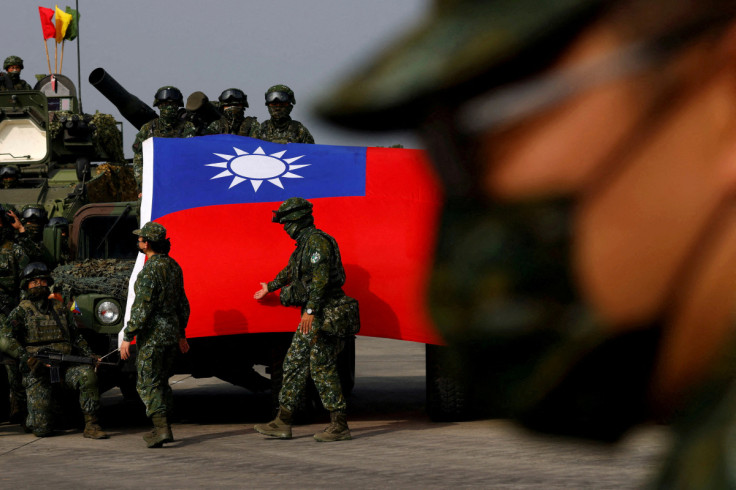China Could Force Taiwan To Agree To Reunification Without War

KEY POINTS
- House lawmakers warned the U.S. would have a hard time resupplying Taiwan in a potential blockade
- They recommend increasing the U.S.' economic and military aid to Taiwan
- A Taiwanese economic official said they are regularly checking stockpile reserves
A potential military blockade by China around Taiwan could force the self-ruled island to agree to terms of reunification, even without a full-blown conflict.
This is the concern of the members of the House Select Committee on the Strategic Competition between the U.S. and the Chinese Communist Party, according to The Hill.
"You may not be able to swallow a porcupine, but you can starve it," the House lawmakers cited Taiwanese national security officials telling them during their trip to the island in February.
In a 15-page policy recommendation titled "Ten for Taiwan," the House select committee urged the Biden administration to ramp up its assistance to Taiwan, warning that efforts to resupply the island with military or economic aid would be nearly impossible in the event of a Chinese invasion or blockade.
"It is in the political, security, and economic interests of the United States to deter an act of military aggression from the [People's Republic of China] toward Taiwan," the committee said.
The House China committee said in its policy paper that Congress should act on increasing the "annual regional contingency stockpile additions" to support Taiwan while calling on the Department of Defense (DoD) to establish war reserve stocks in the island and other locations in the Indo-Pacific region.
"This WRSA [War Reserve Stocks for Allies]-Taiwan program could resemble the stockpiles maintained by Central Command in Israel," the document said.
The House lawmakers also recommend strengthening and distributing the U.S. force posture in the Indo-Pacific by urging the military to "invest in passive defenses, such as hardened fuel depots and other logistics facilities." They also call for the U.S. Air Force to increase its resourcing for fielding deployable airbase sets in the region.
The select committee's policy paper wants the U.S. and Taiwanese militaries to "operate in an integrated manner" by establishing a combined planning group. The lawmakers said it would allow American and Taiwanese military planners to develop procedures in the event of a Chinese attack.
Meanwhile, Chen Chern-chyi, Taiwan's deputy minister for economic affairs, said they regularly check inventories of stockpiled life-saving reserves that can sustain the island in a possible conflict with China, according to The Hill.
But Chen claimed that China is looking at Taiwan's economic vulnerabilities, targeting specific groups "especially the farmers and the rural areas."
Taiwan is also looking at fortifying its communications infrastructure after witnessing how Ukraine's cellphone connectivity and internet connection galvanized its nation and rallied global support against Russia.
"I think we are looking at how the Ukrainians have fortified in the process of resisting the invasion, also the public will to defend as a strong message, also, of deterrence," Hsiao Bi-khim, Taiwan's Representative to the U.S., said, per The Hill.
Hsiao said having resilient and redundant communications systems would allow the Taiwanese society to continue functioning in a potential Chinese blockade.
"I think that is also critical to our broader resilience," Hsiao said.

© Copyright IBTimes 2025. All rights reserved.






















